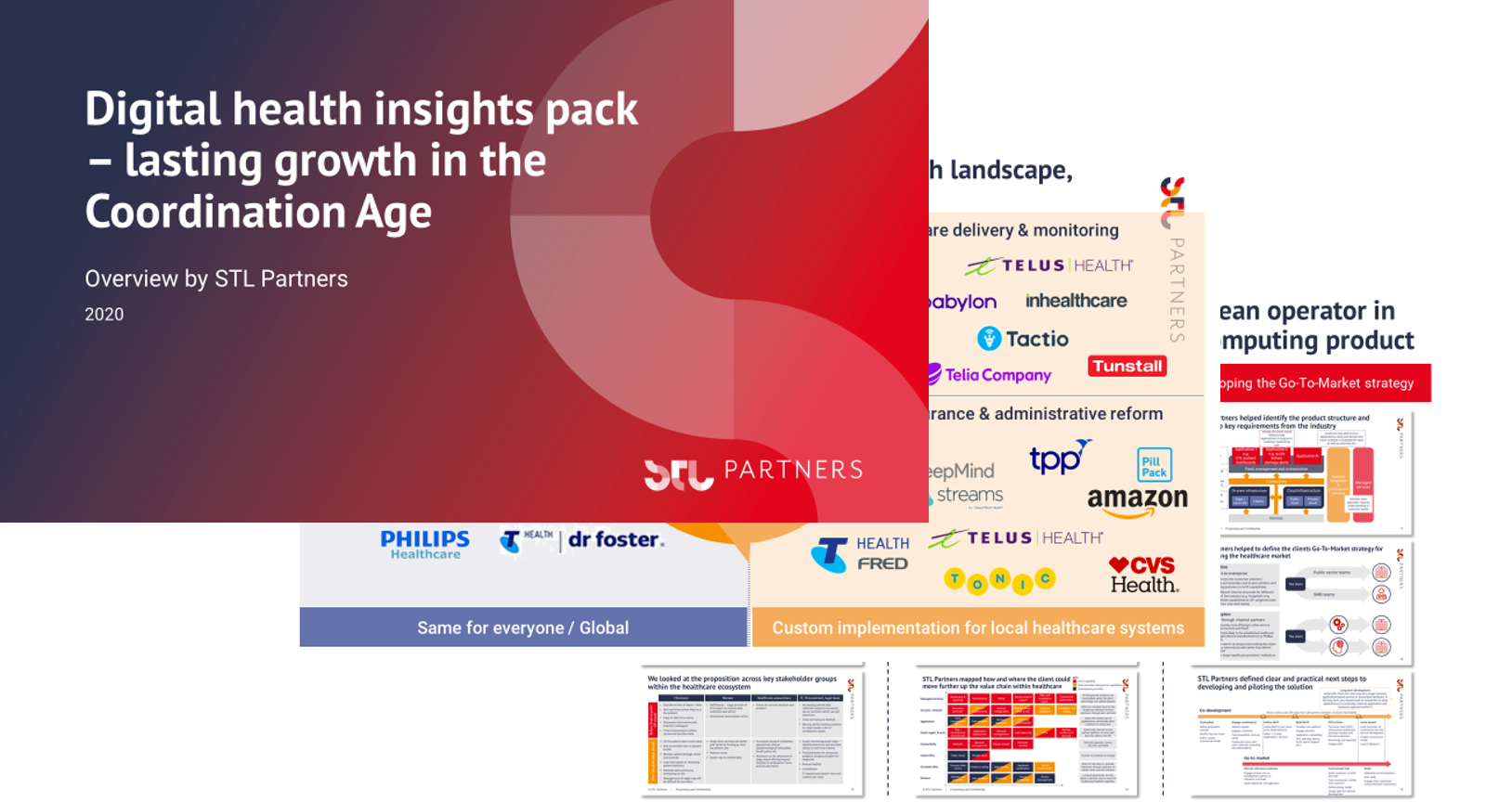5 innovative telehealth apps for 2022
Demand for telehealth apps has been increasing rapidly in recent years as healthcare continues its move towards digitisation, with COVID-19 only accelerating this trend. 2020 alone saw 90,000 new telehealth apps added to the market, so finding a niche is crucial. Below we outline 5 telehealth apps which exemplify different potential niches in the market.
1. Bold Health
Health area: Digestive health
End user: Patient
Payer: Consumer
Bold health is the one-stop shop for gut health, from diagnoses to chronic and acute condition management or just personal health and wellness. Gut health has been at the forefront of medical research in recent years, as has personalised medicine, meaning bold health is in a perfect position to capitalise on these opportunities.
74 % of Americans live with digestive health symptoms including diarrhoea, gas, bloating and abdominal pain which can impact quality of life and even lead to significant disruption of daily life. It’s estimated that these issues account for around $136 billion of annual medical expenditure in the US. Furthermore, we are beginning to learn more about the broader health effects of digestive health, for example, the composition of the gut microbiome being a significant contributory factor for anxiety and depression. It’s known that dietary interventions can affect the composition of the gut microbiome, as can pharmaceuticals such as probiotics. Research even indicates that probiotics may be just as effective in managing these illnesses as psychiatric drugs, but this hasn’t been reliably confirmed yet.
Bold health recognises the need for a holistic approach to this multi-faceted problem and therefore offers a range of services, including a personalised care plan, virtual 1:1 consultations, diet & nutrition plans and weekly therapy sessions. The user is likely going to have to make long-term lifestyle changes so this support is going to result in better outcomes. Bold health currently has 3 apps including the Zemedy app which assists in the management of IBS and costs $49.99 / 3 months for just the self-management programme or $169.99 / 3 months for the programme and coaching.
2. Genome Medical
Health area: Genomics
End user: Customer
Payer: Customer/ insurance
Genome medical is a telehealth company which gives customers insight into their genetic risk factors through genetic testing and virtual consultations with experts. This service isn’t only beneficial for people with a family history of inheritable disease but also people looking to be proactive about your health. As we learn more about genetics and the effects on our health, the insights will only get more useful, and results can be revisited in the future.
Naturally, people with a family history of inheritable disease would be most likely to use this service. If an individual feels they may be at risk of developing a heritable disease, genetic testing can estimate the probabilities of onset which then allows preventative action, monitoring and treatments which could ultimately save lives. Additionally, many genetic diseases have variants which may respond differently to treatment so knowing which variant you have/likely to have may be vital.
However, insights from genomics can also be used for general health and wellbeing, an example of this is personalised nutritional advice. A single mutation of the MTHFR gene alters the structure of an enzyme involved in crucial body functions including folate metabolism. This is the process by which vitamin B9, which we get from food or supplements is converted into methylfolate (activated vitamin B9) which is needed for many body functions like making neurotransmitters, maintaining healthy red blood cells and preventing heart disease. An individual with this mutation would therefore be at a higher risk of disease and general poor health but this risk could potentially be mitigated by increasing their intake of folates to account for this reduced metabolism.
Genome medical simplifies this process for the end-user through virtual consultations to discuss the results of the test, giving informed insight into the results. Furthermore, the results received could unsettle some people so having a 1:1 conversation with an expert could mitigate this by giving the individual the chance to ask questions. Genome medical also offers a virtual consultation with a genetic counsellor before ordering the test which can also reduce the prevalence of unnecessary testing by ensuring the customer understand the capabilities of the test. Finally, the information gained can also be given to your primary care provider to inform future health care decisions as part of a personalised medicine approach.
3. Getubetter
Health area: Musculoskeletal
Payer: Healthcare provider
End user: Healthcare provider, healthcare user
GetUbetter is a telehealth app for the treatment of musculoskeletal (MSK) injuries and conditions. This includes chronic conditions such as neck and back pain but also more acute injuries. Individuals have access to personalised self-management techniques, exercises and nudges and reminders while having access to 24/7 support, should they need it.
Each year in the UK around 20% of all GP consultations are regarding an MSK problem with MSK constituting the third largest NHS programme budget. Furthermore, MSK conditions account for around 30 million working days lost annually. These figures are only going to get worse with an ageing population living sedentary lifestyles, often with suboptimal diets. The global burden of disease study highlights that neck and lower back pain remain the biggest cause of ill health overall and across age groups.
MSK self-management can increase the rate of recovery and reduce the severity of injuries and conditions, without using up valuable resources in the form of physicians and appointments etc. The earlier and more effective the intervention, the fewer resources will be needed to treat it. This approach is not only good from a functional perspective i.e better care provided, but also from a social and psychological perspective as well. Having 24/7 access will help the patient feel supported and give them more confidence in their recovery. It’s been found that an individual’s psychological state soon after an MSK injury can predict pain and disability many months down the line, even after accounting for the severity of the injury, showing this is an important factor for recovery. Finally, MSK is often part of comorbidities, integration of digital MSK solutions with digital solutions for the other morbidities can increase the overall efficacy of health care.
The Getubetter telehealth app is well placed to tackle this growing issue. The 24/7 support offered allows patients to be treated remotely where possible but allows patients to be redirected to healthcare services if its required, ensuring MSK developments won’t be missed. Additionally, the platform can be integrated across the whole treatment pathway, preventing silos of care. Numerous different individuals and organisations may be involved in the treatment of a single patient with an MSK condition, so having all the recovery data in one place streamlines the process and reduces the likelihood of over treatment. This is especially important for elderly patients who may have trouble keeping track of their treatment regimen.
4. Oncall
Health area: App development
Payer: Healthcare provider
End user: Healthcare provider, healthcare user
Oncall is a telehealth app which provides an end-to-end solution for healthcare providers looking to scale their telehealth offering. Healthcare providers sign up to the service and are assigned an implementation team provided by Oncall to build their telehealth app and launch it on their behalf. Customers pay a monthly fee for the use of Oncall’s platform, on which the app runs, as well as license fees for administrators.
Healthcare is going digital as private providers seek to attract new customers while public sectors seek to increase the efficacy and efficiency of their service. This really isn’t feasible without digitisation, something which has seen relatively slow adoption in healthcare so far. Convenience and trust are the 2 key factors for a successful digital health solution, both for the providers and the patients. Ultimately, the experience needs to be simple and effective to drive increase usage.
Oncall’s solution is convenient during the set up as well as the end use. The implementation team will work with the providers to understand the goals and needs of the app and ensure they are met. They also provide training for the operation and maintenance of the app to the providers’ administrators. Apps are developed in 30-60 days which allows healthcare providers to be flexible and adaptable while ensuring a quality product.
5. S12 Solutions
Health area: Mental health
Payer: Healthcare providers
End user: Healthcare providers
S12 Solutions is a telehealth app for the completion of mental health assessments (MHA’s) in the UK. The Mental Health Act 1983 allows the compulsory admission of an individual to a hospital if certain criteria are met during a mental health assessment (MHA). MHA’s are carried out by at least 2 doctors, one of which needs to be ‘section 12 approved’ meaning they are certified to be experienced in mental health treatment.
Due to the nature of mental illness, individuals often won’t have capacity to agree to treatment or even actively refuse it. An MHA gives healthcare professionals the permission to treat individuals against their will, to ensure their safety. This is, of course, extremely sensitive as the individuals’ human rights are restricted and therefore it is heavily regulated and failing to follow the law can result in massive negative consequences for the healthcare providers. As mentioned previously, doctors with specific qualifications need to be present and specific paperwork needs to be fully completed. The telehealth app reduces the burden of keeping track of the completion of this procedure, as well as reduced the risk of files being misplaced, damaged or stolen.
Furthermore, available doctors may be limited so having the capability to search for available and qualified doctors in the area is crucial, especially as the MHA is time critical. Delays to this process can cause distress to the individual as well as the staff who have limited power to begin treatment. There are also instances where an individual can be held in the hospital against their will for up to 24 hours without a MHA, but after that they can leave which could put their safety or the safety of the public at risk.
S12 solution’s telehealth app provides a platform to simplify and organise the process of MHA’s. Features such as reminders of upcoming/due MHA’s, an ability to search for qualified doctors in the area and clear organisation of files are extremely helpful for mental health professionals. This all translates into better health outcomes for patients and so it’s no surprise that S12 solutions is used by 75% of England’s Mental Health Trusts.
chnologies to transform the healthcare industry into a fully digitised environment.
To find out more information, contact our dedicated Digital Health lead at darius.singh@stlpartners.com, or explore our Digital Health Hub.
Author: Kuba Smolorz is a Consultant at STL Partners, specialising in 5G, edge computing and digital health
Digital health insights pack
This 24-page document will provide you with a summary of insights from our healthcare research and consulting work:
- Key trends in the healthcare industry
- The role for telecoms: applications and business models
- Strategies for success: where to start
- How STL Partners can support you
Request the free digital health insights pack by clicking on button below:
![]()
Get in touch with our Digital Health Leads




